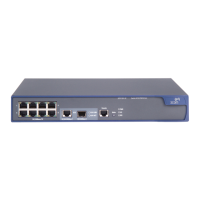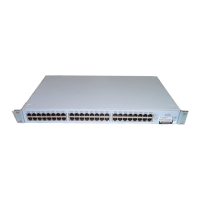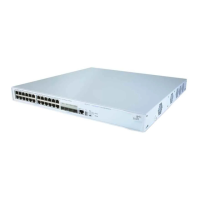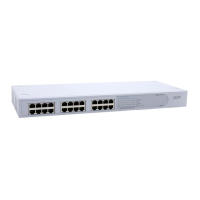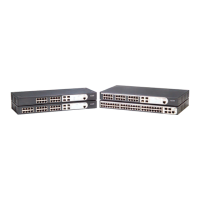706 CHAPTER 49: MULTICAST ROUTING AND FORWARDING CONFIGURATION
Configuring Multicast
Routing and
Forwarding
Configuration
Prerequisites
Before configuring multicast routing and forwarding, complete the following
tasks:
■ Configure a unicast routing protocol so that all devices in the domain are
interoperable at the network layer.
■ Enable PIM (PIM-DM or PIM-SM).
Before configuring multicast routing and forwarding, prepare the following data:
■ The minimum TTL value required for a multicast packet to be forwarded
■ The maximum number of downstream nodes for a single route in a multicast
forwarding table
■ The maximum number of routing entries in a multicast forwarding table
Enabling IP Multicast
Routing
Before configuring any Layer 3 multicast functionality, you must enable IP
multicast routing.
Follow these steps to enable IP multicast routing:
c
CAUTION: IP multicast does not support the use of secondary IP address
segments. Namely, multicast can be routed and forwarded only through primary IP
addresses, rather than secondary addresses, even if configured on interfaces.
For details about primary and secondary IP addresses, refer to “IP Addressing
Configuration” on page 121.
Configuring Multicast
Static Routes
Based on the application environment, a multicast static route has the following
two functions:
■ Changing an RPF route. If the multicast topology structure is the same as the
unicast topology in a network, the delivery path of multicast traffic is the same
as in unicast. By configuring a multicast static route, you can change the RPF
route so as to create a transmission path that is different from the unicast
traffic transmission path.
■ Creating an RPF route. When a unicast route is interrupted, multicast traffic
forwarding is stopped due to lack of an RPF route. By configuring a multicast
static route, you can create an RPF route so that a multicast routing entry is
created to guide multicast traffic forwarding.
Follow these steps to configure a multicast static route:
To do… Use the command… Remarks
Enter system view system-view -
Enable IP multicast routing multicast routing-enable Required
Disable by default
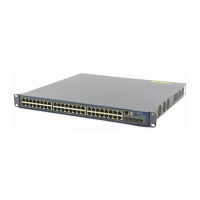
